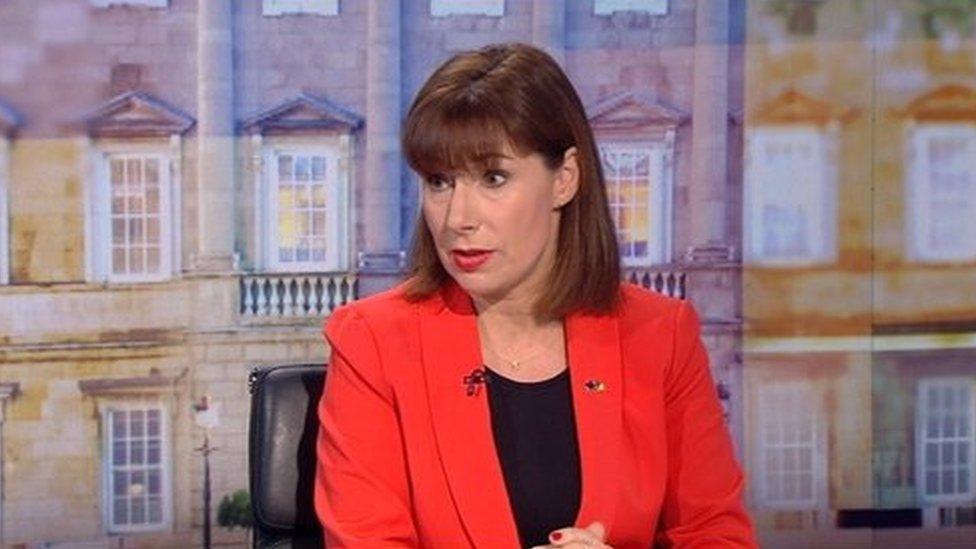Divorce referendum 'reflects changing face of Ireland'
- Published

A referendum on liberalising Irish divorce laws will take place on 24 May
Lampposts across the the Republic of Ireland are covered with election posters but you will not find many about the divorce referendum.
In 1995, this once very Catholic country voted to allow divorce by a tiny margin, with a backing of 50.3%.
The constitutional position is that if someone has been separated for four of the previous five years they can apply to get a divorce and to remarry, external.
And in the Republic there has to be a referendum to amend the constitution.
The government is proposing - in a vote on May 24 - to remove divorce timeframes from the constitution and to allow the Oireachtas (Irish parliament) to decide how long a couple should be separated before divorce is allowed.
Parties support liberalisation
The government has indicated that it believes two years is long enough.
So, what has been put forward is a liberalisation and people are also being asked - in another referendum on the same day - to recognise foreign divorces.

Divorce was approved in the Republic of Ireland in 1995 by 50.28% to 49.72%
The government's proposal has to be seen in the context of the recent overwhelming popular support for same-sex marriage and for abortion rights for women.
Recent constitutional referendums in the Republic of Ireland have scrapped the country's ban on abortion and legalised same-sex marriage.
The main political parties in the Republic of Ireland all support liberalisation.
Josepha Madigan, the director of elections for Fine Gael, the governing party, believes the existing four-year wait before someone can even apply for a divorce puts an enormous toll on many people.
She also says that people are often caught in a drawn-out court process that only serves to increase acrimony and that family relationships become strained even further, often beyond repair.
Little media coverage
Due to the party political consensus on the issue, most of the opposition to the proposal is coming from Catholic pressure groups like the Iona Institute.

Josepha Madigan claims that the existing divorce law puts strain on families
Its director David Quinn believes that getting out of a marriage should not be made quick and easy because of the legal commitment couples enter.
He says he has no particular objection to the four-year waiting time for divorce being reduced to two years.
But he says he does not want to see it being removed from the constitution completely because then there is nothing to stop a future government reducing the waiting time to six months, for example.
According to Eurostat, the European statistical agency, the Republic of Ireland has one of the lowest divorce rates in Europe, much lower than the UK.
The crude divorce rate in the Republic of Ireland is 0.6% a year for every 1,000 people, external compared with 1.9% for the UK and 3.2% for the US, says Eurostat.
The divorce referendum has not been getting much of media or polling coverage because it is due to be held on the same day as the local and European elections as well as another referendum to allow directly elected mayors in Waterford, Limerick and Cork.
But the expectation is that after the marriage equality and abortion referenda the government's proposal will be comfortably carried.
- Published29 January 2019

- Published26 May 2018

- Published23 May 2015
